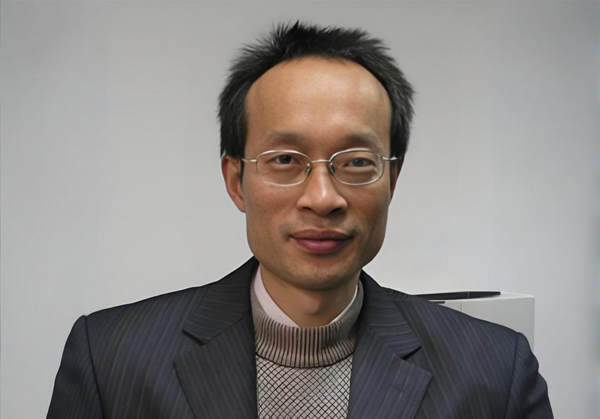Biography
Tenured Associate Professor, College of Chemistry and Molecular Engineering, Peking University (2015-now)
Tenure-Track Assistant Professor, College of Chemistry and Molecular Engineering, Peking University (2008-2014)
Ph.D. in Physical Chemistry, Peking University (2003)
B.S. in Physical Chemistry, Peking University (1998)
Research Interests
Development of first-principles approaches to electronic excitations and strong correlation in materials and their applications to inorganic luminescent materials, heterogeneous catalysis, and molecular magnetic systems.
Teaching
Intermediate Physical Chemistry
Quantum Chemistry
Selected Publications
Jun-Zhong Xie, Xu-Yuan Zhou, Bin Jin, and Hong Jiang*, Machine Learning Force Field-Aided Cluster Expansion Approach to Phase Diagram of Alloyed Materials, J. Theo. Chem. Comput. 20, 6207-6217 (2024).
Jun-Zhong Xie and Hong Jiang*, Revealing carbon vacancy distribution on alpha-MoC1-x surfaces by machine-learning force field aided cluster expansion approach,J. Phys. Chem. C 127(27), 13228-13237(2023).
Huai-Yang Sun, Lin Xiong and Hong Jiang*, Towards first-principles approaches for mechanistic study of self-trapped exciton luminescence,Chem. Phys. Rev. 4, 031302 (2023).
Yuhang Ai, Qiming Sun, and Hong Jiang*, Efficient Multiconfigurational Quantum Chemistry Approach to Single-Ion Magnets Based on Density Matrix Embedding Theory,J. Phys. Chem. Lett. 13, 10627-10634(2022).
Jun-Zhong Xie, Xue-Yuan Zhou, Hong Jiang*, Perspective on optimal strategies of building cluster expansion models for configurationally disordered materials, J. Chem. Phys. 157, 200901(2022).
Jun-Zhong Xie, Xu-Yuan Zhou, Dong Luan, and Hong Jiang*, Machine Learning Force Field Aided Cluster Expansion Approach to Configurationally Disordered Materials: Critical Assessment of Training Set Selection and Size Convergence, J. Chem. Theory Comput. 18,3795–3804 (2022).
Yu Zhang, Xingyi Liu, Huaiyang Sun, Jinxia Zhang, Xiaowen Gao, Chuang Yang, Qi Li, Hong Jiang*, Juan Wang*, andDongsheng Xu*,Strong Self-Trapped Exciton Emissions in Two-dimensional Na-InHalide Perovskites Triggered by Antimony Doping,Angew. Chem. Int. Ed. 60, 7587-7592 (2021).
Min-Ye Zhang, Zhi-Hao Cui, Yue-Chao Wang, Hong Jiang*, Hybrid functionals with system-dependent parameters: conceptual foundation and methodological developments,WIREs Computational Molecular Science 10, 1476 (2020).
Yue-Chao Wang and Hong Jiang*, Local screened Coulomb correction approach to strongly correlated d -electron systems,J. Chem. Phys.150,154116 (2019).
Xi Xu and Hong Jiang*, Cluster expansion based configurational averaging approach to bandgaps of semiconductor alloys , J. Chem. Phys. 150, 034102 (2019).

